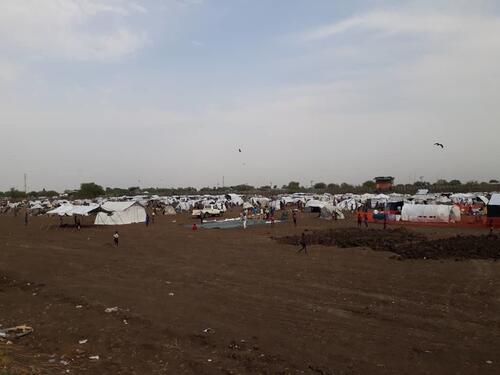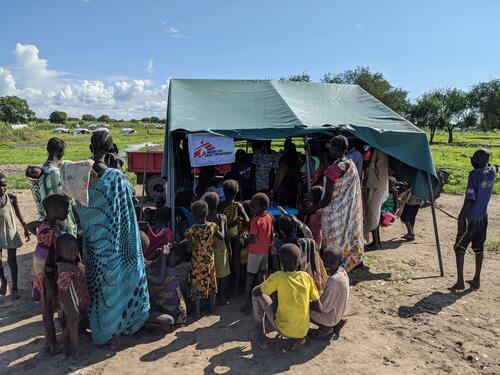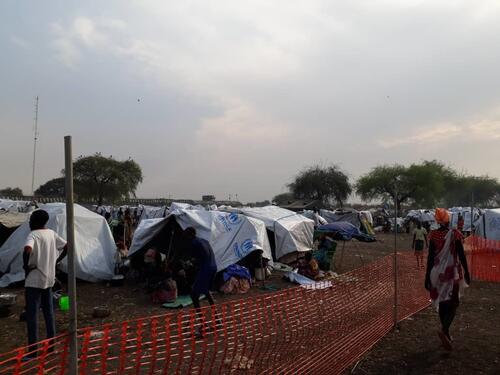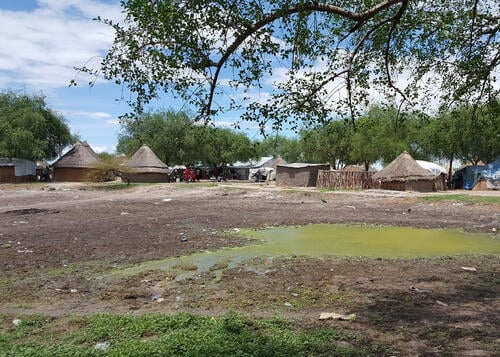Following an outbreak of violence in Jonglei State and the Greater Pibor Administrative area of South Sudan, thousands of people have fled for their lives and are seeking refuge in an area adjacent to the The United Nations Mission in South Sudan (UNMISS) site in Pibor town.
Teams from Médecins Sans Fronitères (MSF) have treated over 28 wounded people in the last two weeks in in our primary healthcare centre in Pibor town. We continue to receive some wounded in Pibor, many people are arriving in other health facilities, and many more are likely to have been unable to reach a health centre. At the same time, we have suspended activities in our two primary healthcare units in the towns of Gumuruk and Lekongole – which have been abandoned by people fleeing the clashes – and we are focusing our efforts on addressing the most urgent needs in Pibor.
“We received information from the community at 2am that we needed to leave immediately” says Nassam*, a resident from Lekongole recently displaced with his family. “We walked the whole night and by 4pm the next day we arrived in Pibor.”
“On the road there were many children and women,” Nassam says. “When we ran, we left everything as I had to carry my father. I was even robbed of my clothes and a small amount of money on my journey to Pibor.”
“We are seeing a high number of malaria, pneumonia, measles, and weapon injuries cases,” The wounded are hard to treat here, and some need referral to Juba for more intensive care.Lojana Augustino Ngorok, MSF Clinical Officer in Pibor
MSF is providing lifesaving medical assistance and has set up an emergency room for patient triage and stabilisation. A delivery room and a referral system for those in need of surgery is also in place.
“We are seeing a high number of malaria, pneumonia, measles, and weapon injuries cases,” says Lojana Augustino Ngorok, MSF Clinical Officer in Pibor. “The wounded are hard to treat here, and some need referral to Juba for more intensive care.”
People currently have very limited access to most necessities like water, food, shelter and latrines. Our teams are working on reinforcing the water, sanitation and hygiene conditions for the displaced people. With only the eight latrines that the MSF team has managed to build so far, the situation of the over 5,000 estimated people seeking safety near the UNMISS site remains disastrous and will get worse as more people come in. Thousands more have fled into the bush.
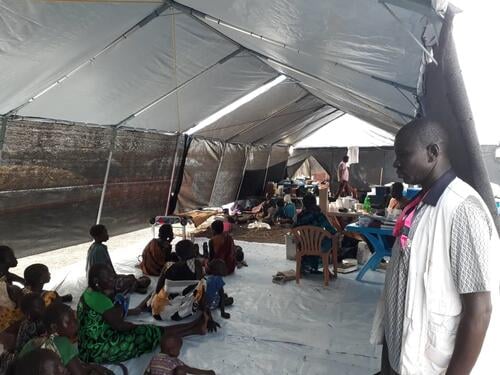
“The camp setting is not a conducive environment and is very worrying. It is far too congested,” continues Lojana Augustino Ngorok. “What I am worried about is the lack of hygiene and water for the population. Food is also a really big concern. Most people are short on food, some do not have any and have arrived with nothing to trade or buy food with.”
“The numbers of patients that our team is seeing in Pibor is too low for the magnitude of the current violence and displacement in the area,” says Ania Zolkiewska, MSF Head of Mission. “With limited health services outside of Pibor town, we are very concerned about the ability of civilians and the wounded to access medical care.”
*Name has been changed to protect identity.




